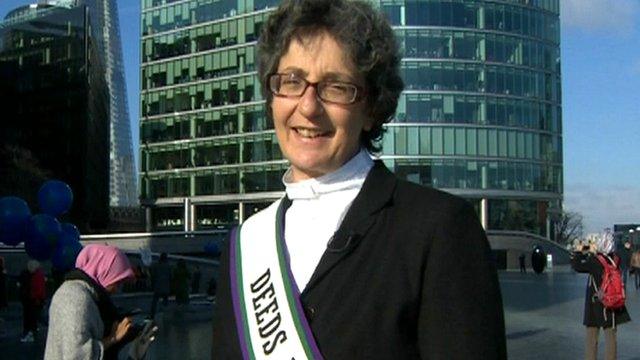Betty Tebbs: Women's rights activist dies aged 98
- Published
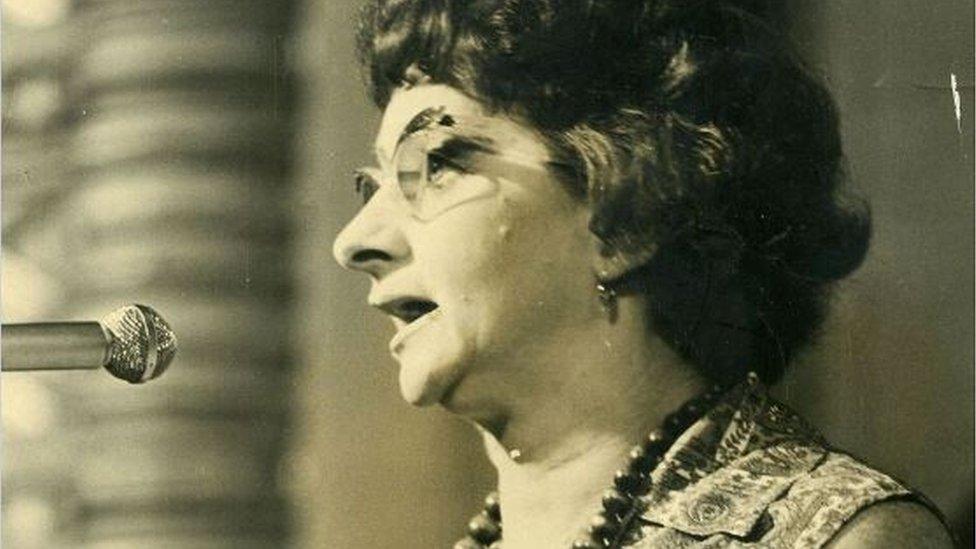
Betty Tebbs became the chairwoman of the National Assembly of Women in 1978
Tributes are being paid to a woman who spent her life working to empower women and fighting for peace.
Betty Tebbs, from Bury, Greater Manchester, died on Monday aged 98.
She became involved with women's rights aged 14 when she discovered the boy working with her at a paper mill was earning more for the same work.
Lynn Collins, a friend from the Trades Union Congress, said she laid some of the groundwork for "legislation that now protects all women."
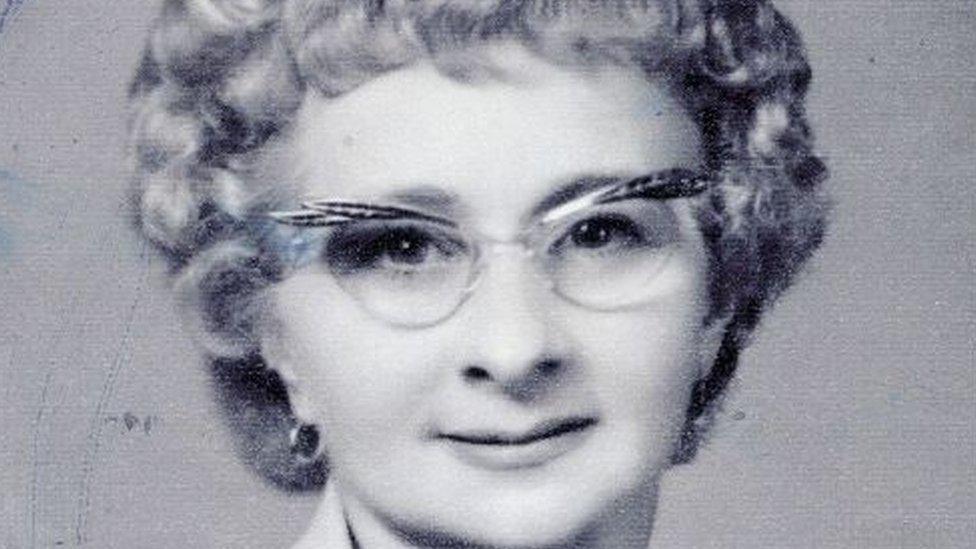
Ms Tebbs was made a life member of Bolton Socialist Club
"Betty was a radical hero who worked tirelessly and with great humility to campaign for equal rights, workers' rights and peace her whole life," said Janneke Geene, from the People's History Museum in Manchester.
'Great courage'
Born at the end of World War One, Ms Tebbs spent her early years working at the East Lancashire Paper Mill in Bury and campaigned for equal rights there for 17 years as part of the union.
But after World War Two, in which her husband died, she turned her attention to the campaign for nuclear disarmament.
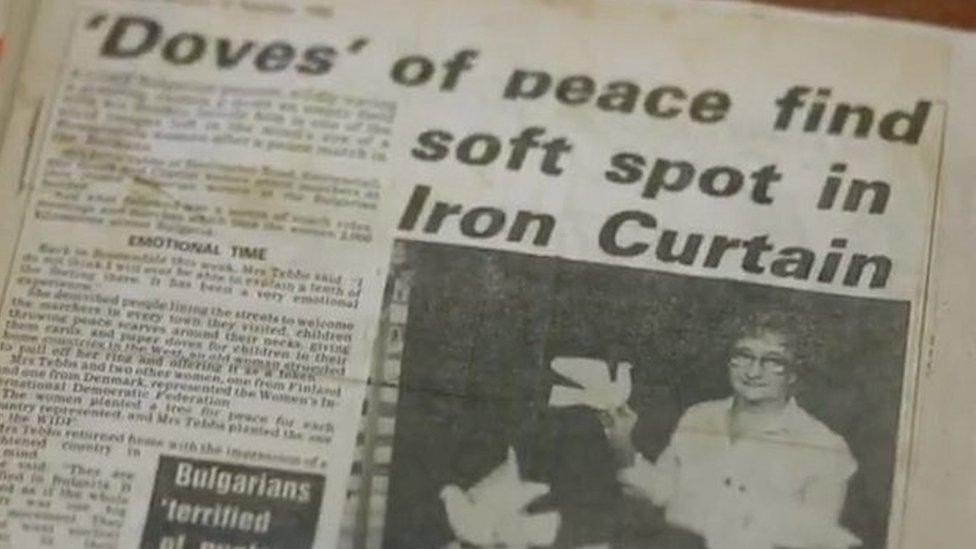
Betty Tebbs met with world leaders on the subject of nuclear disarmament
In 1978, she became chair of the National Assembly of Women and met with world leaders to press them to scrap atomic weapons.
Ms Tebbs stayed active in her later years and was arrested while blockading a military base during an anti-Trident demonstration in Faslane, Scotland in 2007.
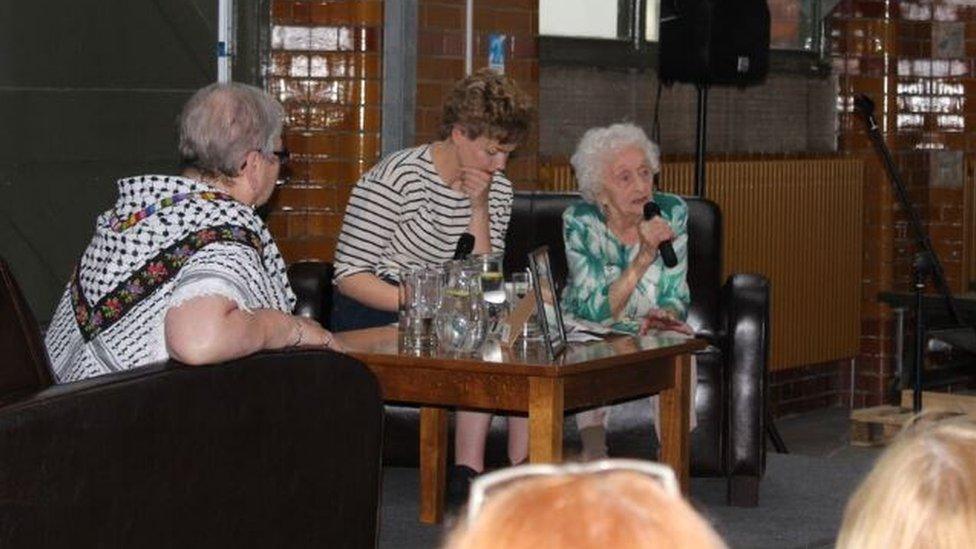
Last year the People's History Museum' put on 'An Audience with Betty Tebbs'
In recent months, she was awarded the Radical Hero Award by People's History Museum and given the Special Women's Award by Manchester City Council.
Equal value
"I was so pleased when I got my first wage until I saw the boy's wage, which was two shillings more than me - and yet we were doing the same work," Ms Tebbs told BBC Artsnight in 2015.
"I couldn't understand it at all why that should be so I went and I joined the union and I've been a trade union member ever since."
Ms Tebbs went on to successfully lead women in a strike for equal pay at the mill in the early 1950s.
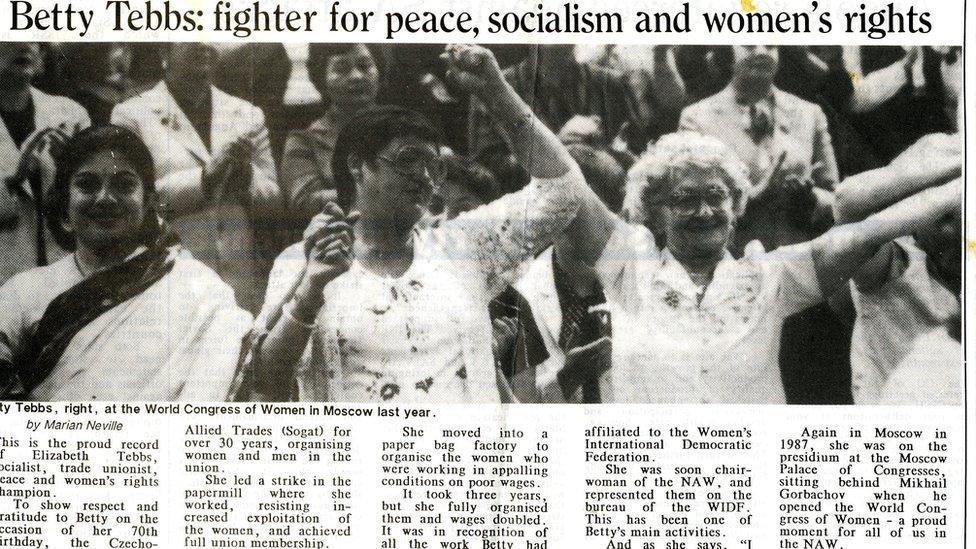
Ms Tebbs at the World Congress of Women in Moscow in 1987
"My organiser said to me 'Well Betty, you've done it - you're the best paid paper mill women in Britain'. So that was worth all the effort wasn't it," she said.
Her funeral is expected to be held on Tuesday.
- Published21 March 2015
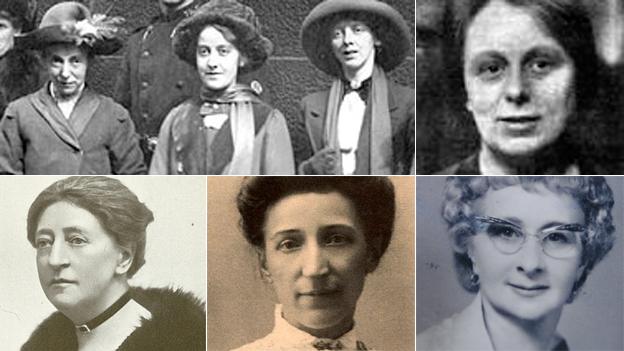
- Published8 March 2015
